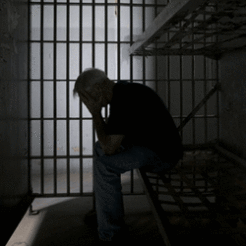Early figures suggest that the Peterborough social impact bond has led to a 6 per cent reduction in recidivism over two corresponding two-year periods, against a 16 per cent increase nationally.
Reconviction statistics published by the Ministry of Justice today track six months of reoffending behaviour and are compared to an historic baseline.
The figures show that there has been a more than 6 per cent decline in the frequency of reconviction events per 100 HM Peterborough prisoners in the period 2010-12 compared with the earlier two-year period 2008-10.
This compares to a 16 per cent increase nationally from 2008-10 to 2010-12 - from 69 to 79 reconviction events per 100 offenders - and represents a relative decline of 23 per cent overall.
The published figures include most of the short-sentenced prisoners on the Peterborough social impact bond pilot.
However, a spokeswoman from Social Finance, which manages the social impact bond, said while the figures offered encouragement, they do not measure reoffending behaviour over as long a period as the social impact bond will be judged and are not compiled on precisely the same basis as will be used by an independent assessor during the course of 2014 to determine whether a payment is due.
The Peterborough social impact bond aims to reduce the number of reconvictions among 3,000 short-sentence prisoners by 7.5 per cent over the period of the bond. Investors into the social impact bond will receive a return if the number of reconvictions falls by at least 7.5 per cent overall.
If the social impact bond delivers a drop in reoffending beyond 7.5 per cent, investors will receive an increasing return capped at a maximum of 13 per cent per year over an eight-year period. But if the 7.5 per cent target is not reached, the investors will get nothing back.
In 2014, when the social impact bond will have been running for four years, investors could get an interim payment if targets are met.
David Hutchison, CEO of Social Finance, said: “We are very proud of the work being done in Peterborough by all our local partners and hope that this will lead to success for the Peterborough social impact bond, which will be determined by the summer of 2014.”
Howard League urges restraint
Responding to pilot results, Andrew Neilson, director of campaigns at the Howard League for Penal Reform, said they should not be used as an excuse for blanket payment by results in probation services:
“Peterborough’s success is in part secured through philanthropic investment which funds a service over and above what the taxpayer already pays for. The Peterborough project also works voluntarily with short-sentenced prisoners who engage voluntarily with services on release. That voluntary aspect is considered crucial to the project’s success in areas such as mentoring.
“By contrast, the government is proposing to privatise probation to reduce costs and short-sentenced prisoners will be compelled to receive support on release. Talk of payment for results may yet be a smokescreen for cheap and poor quality services that set people up to fail.”
Results 'not earth-shattering'
Elsewhere, Russell Webster, an independent consultant, suggests the released figures are not "earth-shattering" in a blog today. He wrote: "My view is that these mediocre results make the MoJ’s recently published proposed payment mechanism seem even more unrealistic."
Social impact bonds look set to feature prominently in Justice Secretary Chris Grayling’s rehabilitation reforms, which will open up rehabilitation service delivery to the voluntary and private sector.
During a Parliamentary hearing last year, Grayling held up the Peterborough social impact bond scheme as a good model for private and voluntary sector partnership in prisoner rehabilitation and said the government’s plans would be a major opportunity for the social investment sector.
It’s estimated that the new rehabilitation reforms will create a £5-20bn market









